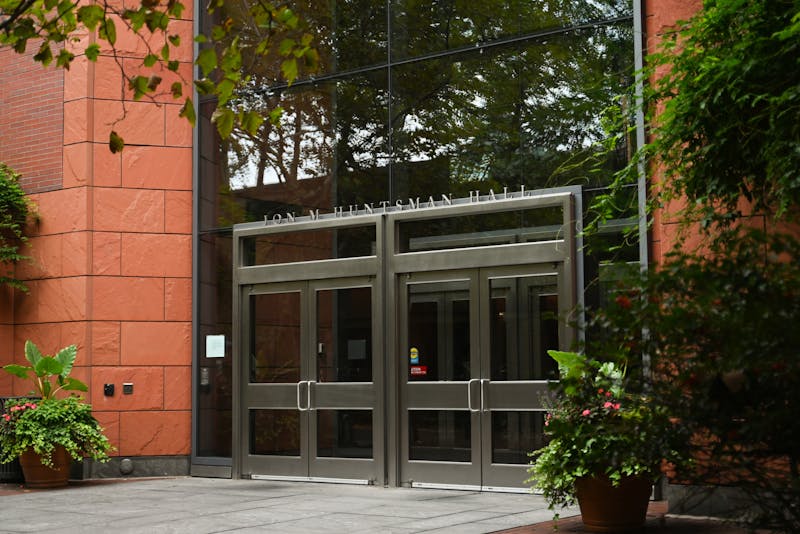With a death grip on my Fodor's map, I tentatively took a right. It was my first day in Munich, Germany, and I was determined to put my footprint (literally) on my home for the summer.
Before I could even get to the first crosswalk, though, a tinny bell clinked behind me, and a harsh voice yelled, "Rechts! Rechts!"
As I whipped around to see what was going on, a bike barreled past me, the rider's gaze fixed on the groceries balanced in the basket in front of him.
Four more people pedaled past me in quick succession, all of them nearly hitting me, and none of them saying so much as "Excuse me" - not even in German.
But, as I quickly learned, they didn't need to: I was in the bike lane, reserved solely for two-wheelers, and everyone else knew that.
In Munich, bicycles are a way of life. About 25,000 Munchners ride bikes on a near-daily basis, and women in business suits or designer jeans ride in sensible flats while hiding heels in their baskets.
Outside my apartment building, a flotilla of bicycles spreads haphazardly over every available surface, its size easily rivaling that of the Penn security guards' fleet.
People ride their bikes to work, to school, to the grocery store, to the museum - everywhere. And whether it's simply an extension of the sidewalk or a specially marked area on the actual street, there is almost always a designated path for bike riders.
The contrast between the bike culture in Munich and the similarly sized Philadelphia is almost frightening.
Around both Penn and Philadelphia, the relationship between bikers, motorists, and pedestrians is much more tense and fractured.
Bikers are allowed on the streets, but they ride at a near-manic speed that, coupled with the pace of traffic, dissuades people from casually riding.
Meanwhile, on Penn's campus, serious bikers careen - against the posted rules, I should point out - down the 38th Street bridge, narrowly missing students dashing to class or Au Bon Pain.
For most new freshmen, their first encounters with bicycles involve bike messengers flipping them off when they try crossing Spruce Street, even though the bikers face a red light and cars are stopped.
It's experiences like these that create an overwhelmingly negative attitude toward bikes and bike riders.
And the situation downtown isn't much better.
Bikers bob and weave awkwardly from the street to the sidewalk and back. Riders fight with pedestrains for room on the sidewalk, and getting clipped by a bicyclist is probably more likely than being hit by a car. Most students are more apt to take SEPTA than ride a bike for an afternoon of shopping on Rittenhouse.
But this is a shame, since, in cities, bicycles pretty much solve every transportation-related problem.
They are exercise - check next to the obesity crisis. They are cheap and require no gas - two checks, one for environmental sustainability and one for costs. Bikes also damage roads less than cars do - check for lower city taxes.
Luckily, building a more biker-friendly culture in Philadelphia wouldn't be that difficult or cost-consuming.
First, areas of the street or sidewalk need to be reserved for bikers only; these areas should preferably be wide enough that the less adventurous would still be willing to bicycle side-by-side with traffic or pedestrains.
Furthermore, basic biker responsibilities need to be articulated to everyone - Philly bikers should follow the Germans' lead and actually use hand signals for turning and stopping and respect traffic lights.
Finally, small bike racks could be placed in front of stores and restaurants. In Munich, those racks - typically with room for five or six bikes each - are topped with advertising for the business, a nice one-two punch.
When transportation options are explained to incoming students, bicycling is often mentioned last and in passing, as something to think about for eventual off-campus living.
But with all the benefits that bike riding can bring for college students and local citizens, biking can and should be better promoted on campus and in the city as a way to safely and cheaply explore a great city instead of just a quicker way of making the Chem lecture.
Alyssa Schwenk is a College sophomore from Ottumwa, Iowa and copy editor of 'The Daily Pennsylvanian.' Her e-mail address is alyssa.schwenk@gmail.com.
The Daily Pennsylvanian is an independent, student-run newspaper. Please consider making a donation to support the coverage that shapes the University. Your generosity ensures a future of strong journalism at Penn.
DonatePlease note All comments are eligible for publication in The Daily Pennsylvanian.







